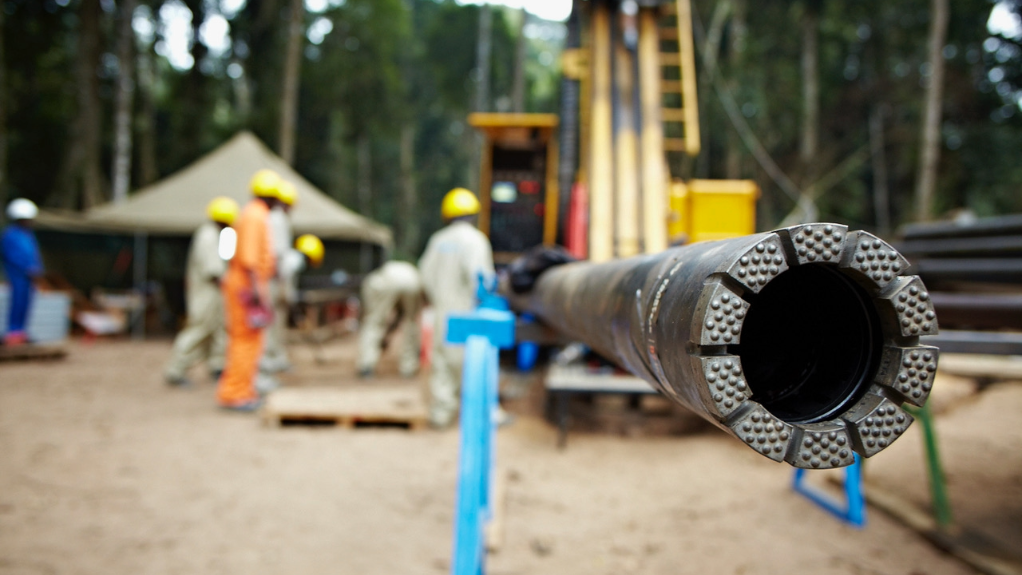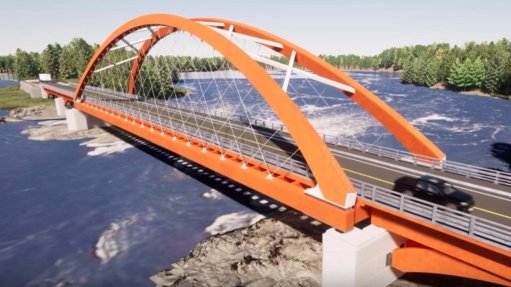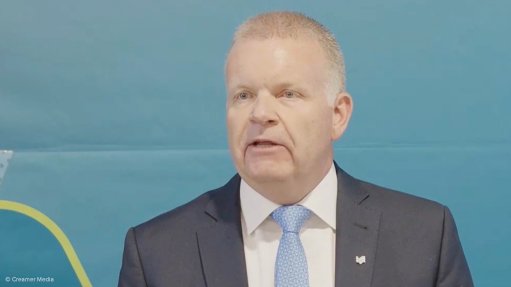Kola potash project, Congo-Brazzaville – update


Photo by Kore Potash
Name of the Project
Kola potash project.
Location
Sintoukola basin, Congo-Brazzaville.
Project Owner/s
Potash development company Kore Potash (97%).
Project Description
Once operational, the project is expected to be one of the lowest-cost muriate of potash (MoP) producers in the world.
Kore Potash completed a definitive feasibility study (DFS) in 2019, in which it proposed a production estimate of 2.2-million tonnes a year of MoP. This is based on a mine life of 33 years comprising 23 production years, exploiting ore reserves of 152.4-million tonnes and 9.7-million tonnes of inferred mineral resources, and an additional ten production years exploiting 70-million tonnes of the remaining inferred mineral resources.
Total MoP production has decreased from 2.2-million tonnes a year in the 2019 DFS to 2.14-million tonnes a year in the 2022 optimisation study.
The optimisation study estimates a 31-year mine life, which includes 25 production years exploiting ore reserves of 152.4-million tonnes, together with 9.7-million tonnes of inferred mineral resources, and an additional six production years exploiting 49-million tons of the remaining inferred mineral resources.
The Kola orebody is planned to be mined using conventional underground mechanised methods, extracting the ore within ‘panels’ using continuous miner equipment of the drum-cutting type. Mine access will be provided through two 270-m-deep vertical shafts, each 8 m in diameter. The shafts will be sunk near the centre of the orebody.
Underground access will be provided through equipping the intake shaft with a hoist and cage system to transport persons and material.
The exhaust shaft will be equipped with a pocket lift conveyor system to continuously convey the mined-out ore to the surface.
Ore from underground will be transported to the process plant using a 24-km-long overland conveyor. A conventional potash flotation plant with a maximum design capacity of 2.24-million tons a year of MoP has been designed for the project. As a result of the low insolubles content, no separate process circuit will be required to extract insoluble material. The final MoP product will then be transported 11 km using a conveyor belt from the process plant to the marine export facility at the coast.
Potential Job Creation
Not stated.
Net Present Value/Internal Rate of Return
The 2022 optimisation study estimates an ungeared after-tax net present value (NPV), at a 10% discount rate, of $1.62-billion and an internal rate of return (IRR) of 20%, compared with an NPV, at a 10% discount rate, of $1.42-billion and an IRR of 17.2% in the DFS.
Capital Expenditure
Capital cost was reduced by $520-million to $1.83-billion on an engineering, procurement and construction (EPC) basis in the 2022 optimisation study, compared with the DFS capital cost of $2.35-billion on an equivalent EPC basis.
Planned Start/End Date
The construction is expected to take about 43 months with first production schedule for the first half of 2029. It has an estimated life-of-mine of 33 years.
Latest Developments
Kore Potash has signed a final EPC contract with PowerChina International Group for the construction of the project.
The contract has been signed at a fixed price of about $1.93-billion, with $708.9-million allocated for the construction of transportation links and utility pipelines that will enable the project to avoid relying on State infrastructure.
Relying on its own infrastructure will be a critical advantage for Kore, compared with other potash projects worldwide.
Signing the contract has minimised the risks associated with cost and time overruns typical in large mining projects, the company has added. It also believes this structure will facilitate accelerated financing and a relatively “straightforward” construction process, leading Kore to profitable production.
The EPC remains subject to financial close for the project.
Kore signed a nonbinding memorandum of understanding with Summit Corporation, which intends to provide Kore with a debt and royalty financing proposal for the construction of Kola, in April 202. Kore expects to receive a nonbinding financing term sheet from Summit by the end of February 2025.
As part of efforts to limit the risks of the project construction, the EPC with PowerChina includes provisions for penalties in the event of delayed completion and noncompliance with performance metrics.
The EPC affirms the board of directors’ aim for the company: to become one of the lowest-cost producers of potash for sale to Brazil and high-growth markets in Africa.
Further, Kore has added that developing the operating capacity to run the Kola operations after commissioning is a challenge, hence its opting for a contract operator model.
PowerChina has submitted a nonbinding proposal to operate the Kola project on Kore’s behalf. Kore has noted, however, that there can be no certainty that a binding operator proposal will be entered into with PowerChina, as it is not required to accept PowerChina’s proposal.
Key Contracts, Suppliers and Consultants
Sepco (engineering, procurement and construction, with China ENFI being a subcontractor); Met-Chem DRA Global (mineral resource estimate); and SRK Consulting (environmental- and social-impact assessment).
Contact Details for Project Information
Tavistock, on behalf of Kore Potash, tel +44 207 920 3150 or email kore@tavistock.co.uk.
Article Enquiry
Email Article
Save Article
To advertise email advertising@creamermedia.co.za or click here
Press Office
Announcements
What's On
Subscribe to improve your user experience...
Option 1 (equivalent of R125 a month):
Receive a weekly copy of Creamer Media's Engineering News & Mining Weekly magazine
(print copy for those in South Africa and e-magazine for those outside of South Africa)
Receive daily email newsletters
Access to full search results
Access archive of magazine back copies
Access to Projects in Progress
Access to ONE Research Report of your choice in PDF format
Option 2 (equivalent of R375 a month):
All benefits from Option 1
PLUS
Access to Creamer Media's Research Channel Africa for ALL Research Reports, in PDF format, on various industrial and mining sectors
including Electricity; Water; Energy Transition; Hydrogen; Roads, Rail and Ports; Coal; Gold; Platinum; Battery Metals; etc.
Already a subscriber?
Forgotten your password?
Receive weekly copy of Creamer Media's Engineering News & Mining Weekly magazine (print copy for those in South Africa and e-magazine for those outside of South Africa)
➕
Recieve daily email newsletters
➕
Access to full search results
➕
Access archive of magazine back copies
➕
Access to Projects in Progress
➕
Access to ONE Research Report of your choice in PDF format
RESEARCH CHANNEL AFRICA
R4500 (equivalent of R375 a month)
SUBSCRIBEAll benefits from Option 1
➕
Access to Creamer Media's Research Channel Africa for ALL Research Reports on various industrial and mining sectors, in PDF format, including on:
Electricity
➕
Water
➕
Energy Transition
➕
Hydrogen
➕
Roads, Rail and Ports
➕
Coal
➕
Gold
➕
Platinum
➕
Battery Metals
➕
etc.
Receive all benefits from Option 1 or Option 2 delivered to numerous people at your company
➕
Multiple User names and Passwords for simultaneous log-ins
➕
Intranet integration access to all in your organisation


















